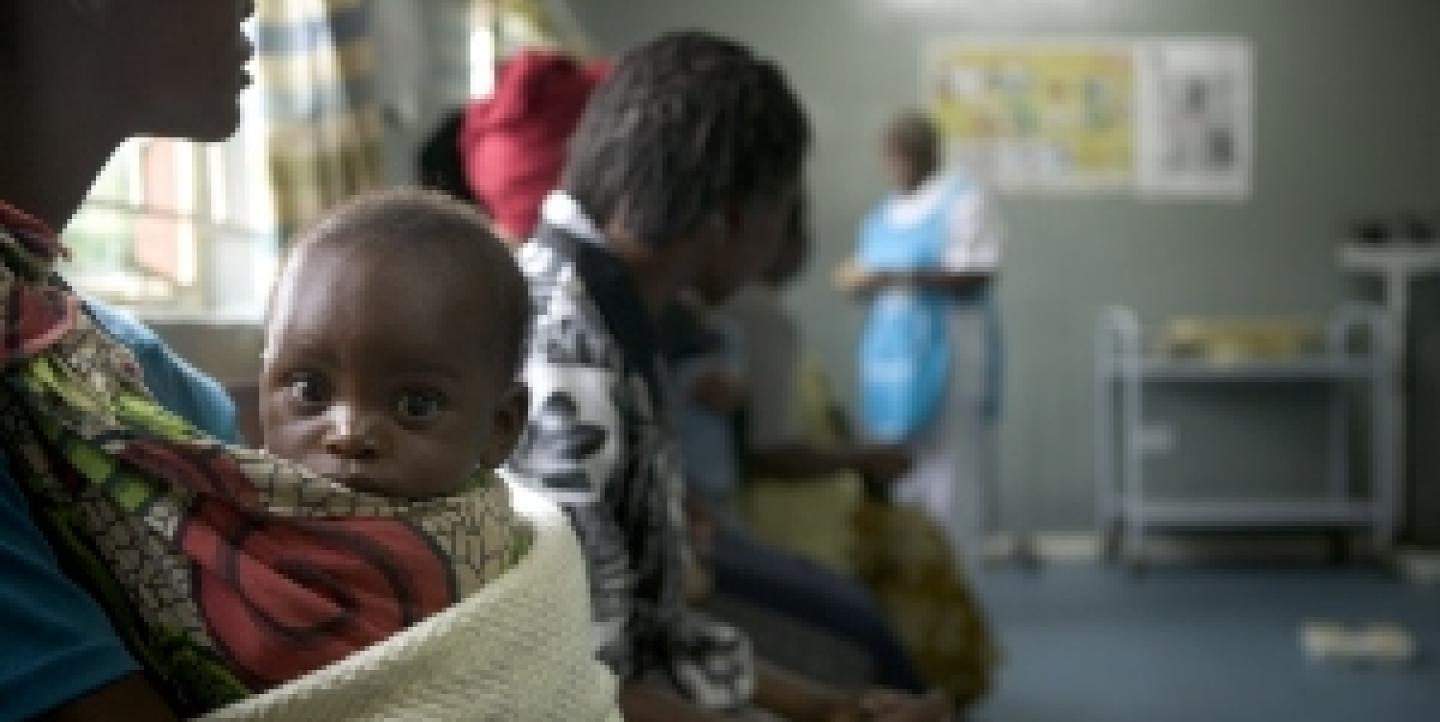Acronyms are thrown around in reports and conferences, especially by non-governmental organizations. Understanding these acronyms is key to writing a good health story.
Though they serve a purpose for NGOs, they only render news articles abstract and impersonal. Understanding these acronyms is key to writing a good health story.
Here is an excerpt from Knight International fellow Antigone Barton's blog "Health Desk" where she clarifies very common, but often misunderstood, acronyms – that she calls "Alphabet Soup." Barton spent a year in Zambia working with local journalists to improve coverage of health issues.
FGM (Female Genital Mutilation): When you have a nickname for something, doesn’t that make it sound casual, benign, acceptable? The still-used term "female circumcision" – an inaccurate, and neutral-sounding term for a harmful practice also does. If you are going to write about a serious health issue with horrific and potentially fatal consequences, tell the reader what you are talking about.
GBV victim (Victim of Gender-Based Violence): A friend mentioned this addition. "How about battered wife?" my friend suggests, instead. A perfect example of how Alphabet Soup robs issues worth talking about of their meaning.
IPT (Intermittent Preventive Treatment or Intermittent Presumptive Treatment): Part of the problem with this acronym is that the words it stands for vary. Both refer to giving anti-malaria medicine to all pregnant women who can get it, to keep mother and child from getting a potentially fatal and debilitating illness. With malaria one of the leading causes of maternal and child death, why pass on a chance to spell out what needs to be done to prevent it?
ITNs (Insecticide-Treated Nets): This is far from the most egregious of the Alphabet Soup servings, but it is still pointless and even potentially misleading. When a government or NGO representative discusses the distribution of X number of "ITNs" it sounds like an end to malaria can’t be far away. Using words instead can make the situation clearer. If readers understand that what is being distributed are nets to hang over beds they may also more readily grasp the potential limitations of that solution – in places where people sleep outside and have nowhere to hang the nets from, for example.
MDG (Millenium Development Goals): Too often we read about gruesome situations, ones that we wouldn’t wish on our worst enemies – children dying of treatable illnesses, women dying in childbirth for want of trained attendants, the spread of preventable diseases – only to have the depiction end with the thought that if the lapses allowing those tragedies to happen aren’t fixed, the country in question will fail to meet MDG ___ (fill in the blank). This, whether you mean well or not is the trivialization of human life. Better to say that in addition to the misery depicted, the country in question has set a goal that current policies run counter to. MDG is, once again, a cruel shorthand for something much bigger that your readers can relate to.
NTD(s) (Neglected Tropical Diseases): This one exemplifies the opportunity lost when using letters instead of words. If these diseases have been neglected in research and funding – which is what the neglect usually refers to – chances are that public awareness efforts of those diseases, or the fact that the term “NTD” has been coined to group them, is low. The words here convey an important topic that can give a dedicated health reporter countless opportunities to tell valuable stories. The letters convey further neglect.
OVC (Orphans and Vulnerable Children): Tell me when you meet an invulnerable child. How about "orphans and children living in extreme poverty." Or even: "Orphans and children like four-year-old _____, whose mother leaves her in the care of her six-year brother while she struggles to earn enough for the family to eat every few days.” Again, people are reading these words and you are writing about people. Why not remind people whose life is at stake when we are writing about programs or research?
PLWHA (People Living With HIV/AIDS): I never thought I would have to add this one until I saw it in an alphabet-soup-ridden story recently. It speaks for itself. If you are writing about people, take the trouble to spell it out.
PMTCT (Prevention of Mother To Child Transmission): The problem here is how this worthy goal is – or isn’t achieved. Preventing women of child-bearing age from becoming infected? Helping women living with HIV prevent unintended pregnancies? Preventing transmission from a mother living with HIV to her child before or after birth? Too often the term PMTCT is used without clarification, or without examining the effectiveness of addressing only one or two parts of that equation. Finally, it has been suggested that a better term would be "Prevention of Parent to Child Transmission," as it is not until prospective parents of both genders know their status that this viscious cycle of the epidemic can be effectively addressed.
TC (Testing and Counseling): I am told this is the new, two-letter abbreviation for VCT (below). This would be a relief, as it doesn’t call stop me mid-sentence to wonder if IVCT (Involuntary Counseling and Testing) is going to be the next big acronym to confuse our readers. But it is just as much of a waste of space. Testing for the virus that leads to AIDS, and the appropriate counseling that should accompany that testing, are the most important components to conquering this epidemic until science steps in with something better. We should never pass on an opportunity to draw attention to that.
VCT (Voluntary Counseling and Testing) or, "getting tested for the virus that leads to AIDS" – while usually fewer words is better this is too important a concept to reduce to an acronym.
What other acronyms would you add to the list?

